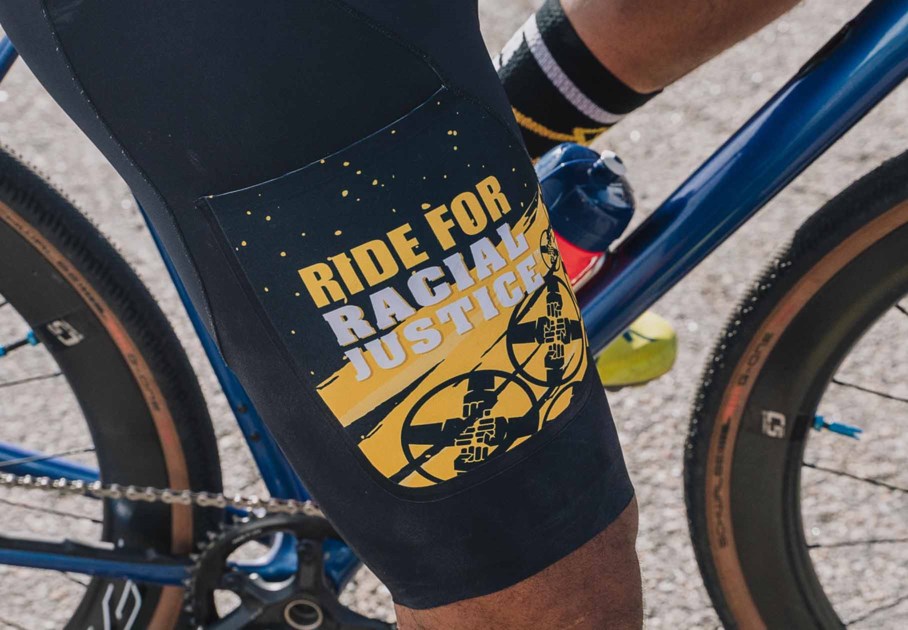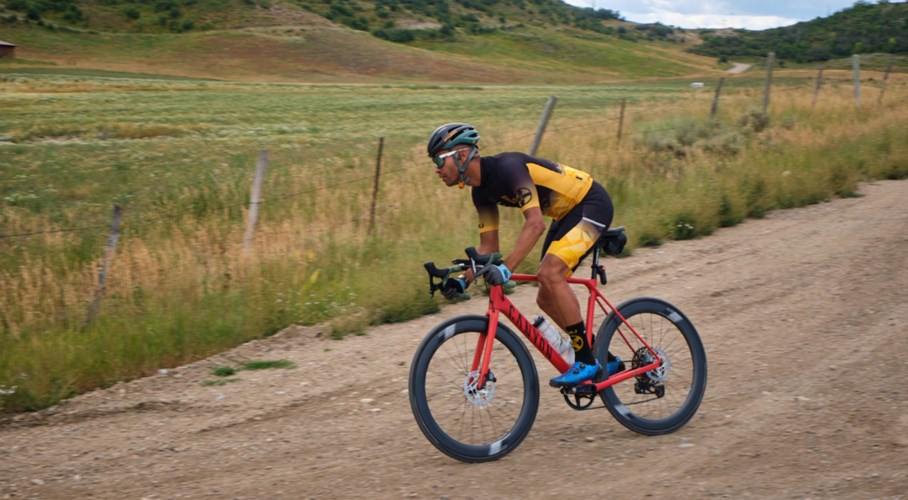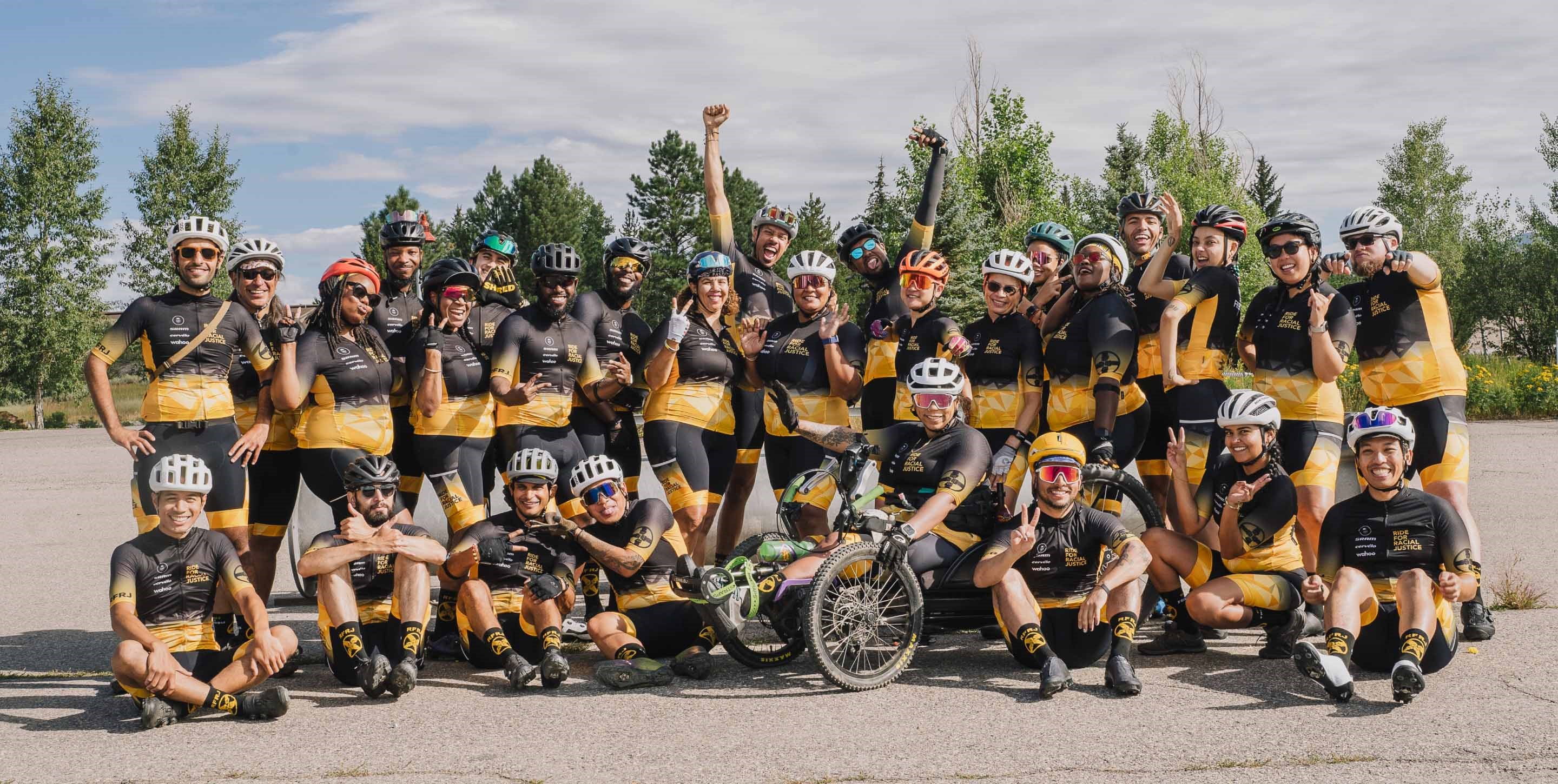BLACK HISTORY MONTH X RIDE FOR RACIAL JUSTICE
BIKES = FREEDOM
Showing up to the start line can be a huge barrier for many cyclists. The crowds are massive, riders dressed in their best kits, and the anticipation of the starting pistol can leave any rider questioning if they need to make a last-minute bathroom run. While most riders will be filled with nerves, it can be exceptionally cumbersome for those who look around the corral and realize that in a sea of riders, they’re alone. The racial makeup of most races (no matter the discipline) is usually less than 10% riders of color. For many of us at Ride for Racial Justice (RFRJ), this is all we have ever known. Some of us have been lining up for over four decades as the only rider of color.
This is not a moment, it is the movement.
–Lin-Manuel Miranda, Hamilton

It's unnerving to point out that a Black man, George Floyd, lost his life in a single moment that will define a generation. Yet he wasn’t the only Black person to lose their life in 2020 validating the fears of most Black athletes, while finally pushing for change in such a monumental way that the world was forced listen. Ahmaud Arbery, a 25-year-old Black man, was murdered while running through a white Georgia suburb, which reaffirmed many Black athlete’s fears about enjoying outdoor spaces, especially alone. Have you ever had to think about what you were wearing (in hopes that people see you as an athlete and not a criminal running from something); the route you’re going to take to avoid the discriminatory yard signs and obvious indicators that you’re unwelcome; the spewed profanities from vehicles, and other microaggressions while just trying to enjoy a bike ride near your home? If your answer was yes, just know we see you and we ride with you.
Bikes have this remarkable way of bringing people together, in pain and/or happiness.
These very questions made Co-Founder Marcus Robinson question whether he would ever ride his bike again. The days following George Floyd’s murder left many of us wondering if we would ever be safe to ride. It’s one thing to always look over your shoulder questioning if a car was going to hit you, but it’s another to now feel like you have a target on your back because of the color of your skin. Co-Founder Neal Henderson reached out to Marcus to ask how he could help. Together, they formed a collective of riders to head out and conquer the road in solidarity. A light bulb went off that day. If Marcus felt like this way about riding his bike, how many other riders of color felt the same? Ride for Racial Justice was created that day to unite communities in the fight for safety, justice, and change.

Bikes have this remarkable way of bringing people together, in pain and/or happiness. Ride for Racial Justice wanted to find a way to bring that same sense of freedom and togetherness to a place where many have never had the opportunity to go, the start line. Systemic racism is deeply rooted in every crevice of the world, and cycling did not make it unscathed. Access into the sport comes with a steep price tag. The cost of a bike is often more than most people’s car and that does not include a lifetime of replacement parts, maintenance, helmets, and other equipment. In addition, there’s barriers to access training and knowledge, trails, or safe places to ride, and a community that makes you feel welcome and included. All being in limited supply within the BIPOC community.

In 2021, Ride for Racial Justice created its BIPOC Ambassador program in partnership with SBT GRVL. The purpose was to increase the diversity and equity of the start line while breaking down barriers to get there by providing financial and logistical support, mentorship, coaching, and a safe space to share lived experiences. But the experience is so much more than material items. It’s the moment at the end of a grueling day when you have given it all you’ve got, the sun is setting, and you hear the cheers of your teammates bringing you into the finish line. The teary-eyed hugs and the indescribable emotion that you’ve just broken-down generational traumas and historical barriers. It’s knowing that you’re not alone on this journey and there’s a community of people waiting to lift you up. A 2023 RFRJ alumni stated that the best part about the program was “without a doubt, the community via our cohort. Feels like I have family across the US now.” Another alumni expressed that the best part of participating was “being with RFRJ! Honestly, the community RFRJ built did not make me pay attention to the surroundings - being around a large group of non-BIPOC individuals. The community that was developed, helped me feel at home.”
What Ride for Racial Justice has built is unique and has paved the way for many other programs. The uproar in 2020 was not just a moment in history, but the beginning of a movement that is still riding the wave towards change. While many companies, brands, and events have taken steps in the right direction, there’s so much work to be done. Everyone deserves to experience the freedom of the bicycle without fear of discrimination or violence. Join us on this journey because representation matters. We look forward to seeing you at the start line.

“Ride for Racial Justice is a 501(c)(3) nonprofit organization and exists to ensure access to resources, education, and community for Black, Indigenous and People of Color (BIPOC) cyclists and to dismantle systemic racism so that EVERYONE can feel safe, free, and empowered to ride a bicycle.” -RFRJ
Story by Ride for Racial Justice.
Photos by Joshua Strong and Abe Alkhamees.
Ride for Racial Justice can be found on Instagram @rideforracialjustice or on their website - rideforracialjustice.org